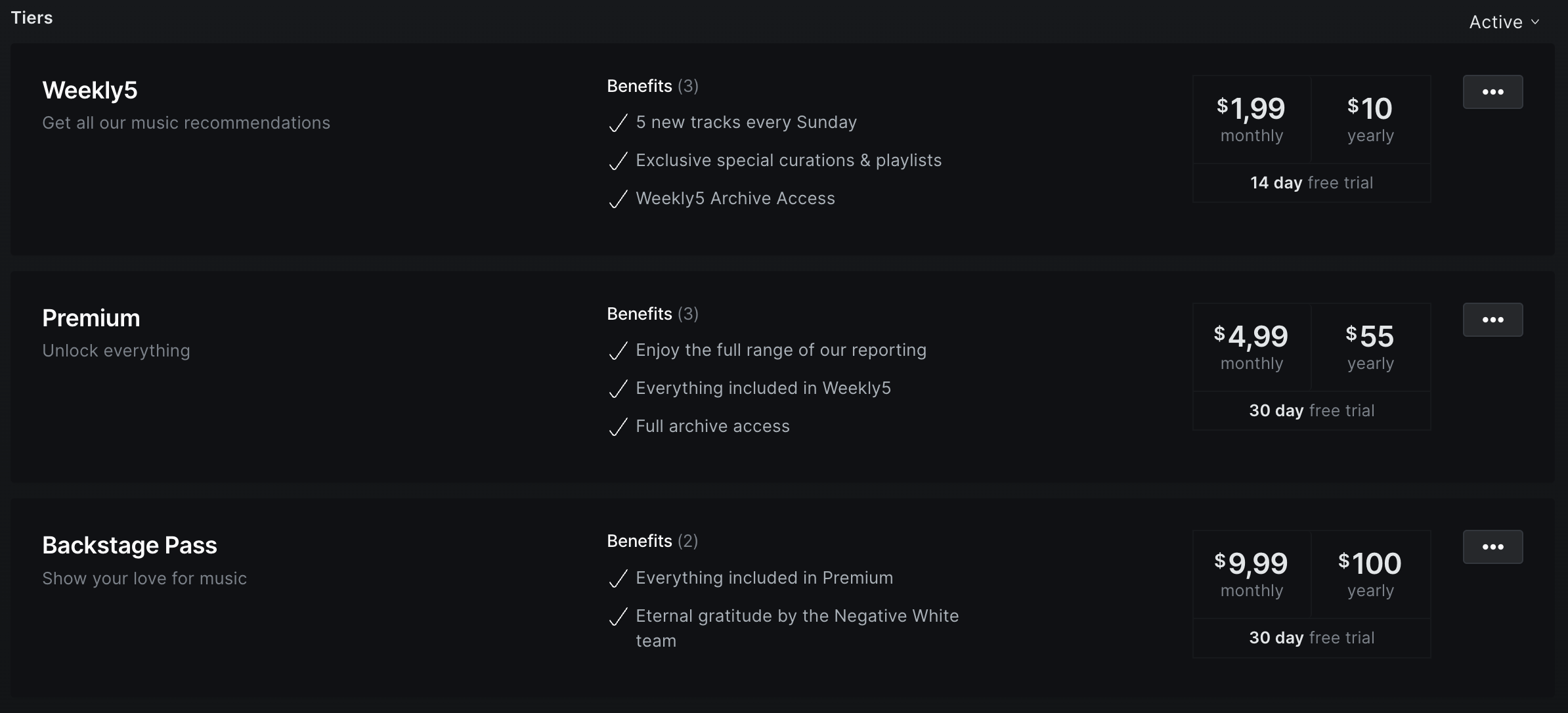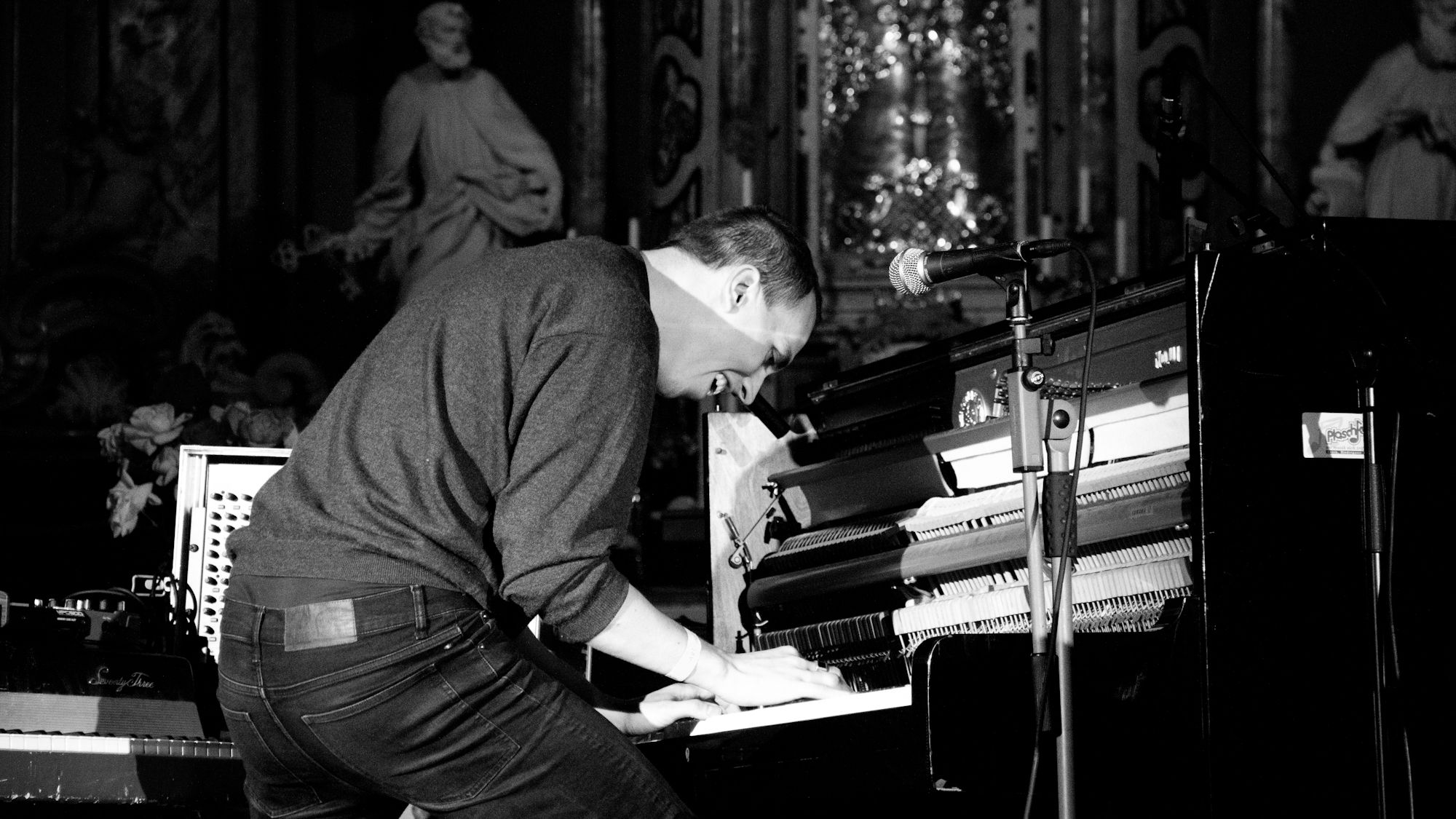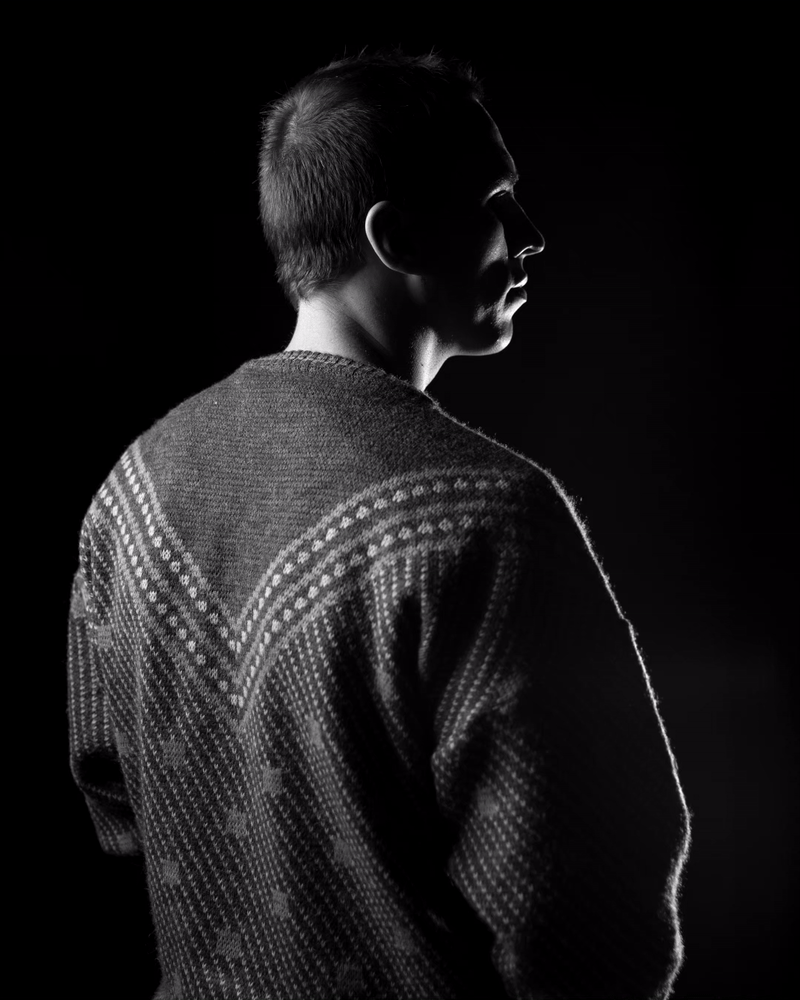Doolally
Weekly5's edition #85 invites you to an exciting journey featuring raw tracks, polished jewels, and defined coolness. Discover new music today.
You can look forward to today's carefully selected curation of new music. Weekly5 is all about breaking free from algorithm-picked more of the same and bringing you truly human-to-human recommendations.
My goal is to transport you to a world of music that is not just entertaining but also meaningful. A world that pushes the boundaries of what we perceive as «good music» and challenges us to expand our horizons.
Experience an exquisite range of innovative sounds that push the envelope, question the «rockstar image», and immerse you in thickly layered compositions.
Hak Baker – Doolally
What's the common thing in post-punk, brit pop, roots reggae, funk, and indie folk? The answer is Hak Baker. The East London artist's sonic innovation is vivacious, resulting in eclectic tracks like Doolally. Here, Baker embarks on a frantic, breathless, Mike Skinner-styled storytelling, mixing cockney dialect with Jamaican Patois, accompanied by an escalating composition of groovy funk guitars, howling brass, and nervous drums—perfectly rounding the notion of Doolally, slang for «out of one's mind», delving into the messy haze of East London's nightlife.
Q&A – Negative White's Comeback
The following post answers some of the most pressing questions about Negative White's comeback.
Some days have passed since Negative White's return. Here, we try to answer some of the most urgent questions you might have about the comeback.
And if you're curious about some other things, just leave a comment, and we'll answer your questions right away.
Negative White folded in 2020. Why is it coming back?
During the decade from 2010 to 2020, Negative White expanded from a modest two-person endeavour into a substantial organisation. At its peak, approximately 30 volunteers were involved in the reporting process.
While the growth greatly enhanced its reputation, it also necessitated an immense amount of work that I struggled to manage and sustain.
As time passed, it became clear that my passion for writing about music is still here. Simultaneously, numerous people expressed their longing for the Weekly5 song recommendations.
This inspired me to revive Negative White with a renewed and in-depth focus on music. Rather than establishing a new brand, I opted to revive Negative White with the same exacting standards of quality, albeit on a smaller scale.
Why are you writing in English?
Yes, it's a bold move. I confidently chose to relaunch Weekly5 in English to expand my reach and showcase emerging Swiss artists globally. I hope this will enhance the impact of my curation efforts.
Moreover, within small Switzerland, we have four national languages. Shamefully I have to say that my French is substandard by the most basic means. Therefore, English is the most reasonable common denominator for a platform reporting on talented musicians and bands.
What content can I expect?
Weekly5 remains a crucial aspect of Negative White's content, but the brand also allows me to explore various formats and engage in more storytelling. I aim to consistently publish more comprehensive stories, such as essays, features, interviews, portraits, and, occasionally, concert reviews. In addition, I strive to delve deeper into these stories and address societal themes beyond the surface level.
One category that can be considered an exception to the norm is the «Noteworthy» section. It features brief updates related to the music industry.
Why do I have to pay to access certain content?
It costs quite some money to run a platform like Negative White: Technical infrastructure, software tools, and other materials are required. It all adds up to approximately 1000 Dollars per year. The subscriptions help to sustain those recurring costs.
At least in Switzerland, written music journalism is primarily done by volunteers passionate about music. These platforms are fueled by nothing but their motivation while still serving an essential purpose: Giving exposure to the creative musical landscape.
But because of the volunteer nature of these platforms, they are likely to fade away quickly should motivation run out or the editors cannot spend money on them. So our subscriptions also contribute to a more sustainable effort.
So are you guys a profit-driven organisation?
No, far from it. The memberships are here to cover the running costs for Negative White—it's pretty far-fetched to assume we could pay fair wages from that. We contribute our time voluntarily.
We deliberately made the paid subscriptions as affordable as possible while maintaining a realistic goal of how many subscriptions we need to cover the costs.

Based on these prices, we can calculate the number of subscriptions needed to cover our annual operating expenses of $1000. We would need 100 yearly subscriptions for Weekly5 or just 18 for Premium.
Our goal is to constantly improve Negative White's content and user experience, and we are committed to investing the subscription income directly into achieving that objective once it surpasses the cost.
Are you looking for contributors?
Yes. If you are a writer or photographer, passionate about music, and show high intrinsic motivation and self-leadership, reach out to us here.
I'm a musician or promoter. How can I reach you?
Check out our contact page to get the correct email address.
Fear No Ghost
Edition #84 introduces you to thoughtful pop music, rebellious electronica, beautiful noise, and hammering beats.
Welcome to the 84th handpicked selection of new music from Switzerland and around the globe. The following curation of five fresh finds contrasts smooth sounds with rebellious and thrilling beats.
LACODA – Fear No Ghost
Announcing her upcoming debut album, title track Fear No Ghost by 33-year-old LACODA highlights the Berlin-based artist's deep and sonorous voice. It evokes an almost mysterious, sinister atmosphere yet is juxtaposed with an eclectic and layered composition full of shiny guitar escapades and captivating pop beats.
Jessiquoi – Jessiwhat
Versatile Swiss artist Jessiquoi long established herself as a landmark of avant-garde pop music with quirky electronically dominated tracks like The Addict or Popstar. With Jessiwhat, she returns ferociously, slapping us with an apocalyptic beat back alive. The track is full of unexpected twists, turns, and exciting shifts.
Helvetiarockt Wins Swiss Music Prize 2023
Helvetiarockt, the organisation fighting for diversity and equality in the music business, wins the Swiss Music Prize.
It's an important signal and a well-deserved acknowledgement of tireless effort for equality and diversity in Switzerland's music business. Awarded by the Federal Office of Culture, the Swiss Music Prizes showcase the country's musical creativity and reward aspirations for diverse and equal representation.
Helvetiarockt wins one of the three Special Music Prizes 2023. For already 14 years, the organisation has fought for the equality and visibility of women and inter, non-binary, trans, and agender people in popular music in Switzerland. On its website, the Federal Office of Culture writes:
[…] The dynamic Helvetiarockt team has not only raised awareness of the Swiss music scene, it has also moved it forward: databases such as the «Music Directory» or guides such as the «Diversity Roadmap» are constructive instruments that organisers can hardly do without in their daily work.
Furthermore, the laudatory text highlights the easy access to practical workshops and mentoring programs that span from songwriting and beat-making to DJing to inspire and encourage underrepresented groups.
With its campaigns and practical programs, Helvetiarockt emphasizes the importance of diverse concert programmes and fair working conditions both in front of and behind the stage. In this, it challenges all outdated structures and puts central issues that affect all music makers in Switzerland up for public debate.
The award further stresses the significance of Helvetiarockt's efforts and goal to «sensitise and raise awareness in the music industry». The organisation says in the official press release: «This recognition of our work sets an example for all women, inter, non-binary, trans, and agender people (FINTA) in music, as well as for feminism, for equal opportunity and the movements that go with it. We're staying tuned. And are very happy about this appreciation!»
Helvetiarockt's work is, unfortunately, still necessary, as the majority of last year's festival line-ups in Switzerland have shown.



